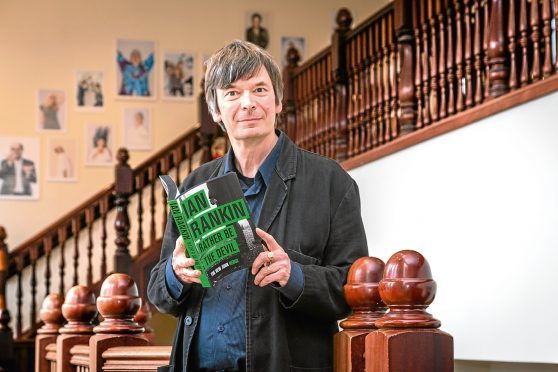It was a plot twist delivered with the type of craft and precision that would be expected of Scotland’s great writers.
And unlike the majority of the countless shots fired daily across the Scottish Government’s bows, this was one that will not have been simply brushed off.
The open letter sent by 111 of the country’s most distinguished authors and poets yesterday warned that “devastating cuts” could mean that Scotland’s great literary tradition could be entering its final chapter due to the threat of funding cuts.
The significance of the intervention, as with most stories, lies in the who, what, where, when and why.
Most important of all, perhaps, was the “who”.
The signatories included some of Scotland’s most celebrated literary figures, and far from the usual suspects when it comes to criticising Scottish Government policy.
In fact, many of the 111 – not least the nation’s leading historian Sir Tom Devine, former national poet Liz Lochhead, Trainspotting author Irvine Welsh, best-selling crime writer Val McDermid, playwright Alan Bissett and musician turned activist Pat Kane – have been prominent supporters of Scottish independence.
Others, meanwhile, regularly interact on social media with Nicola Sturgeon and her colleagues, with Inspector Rebus author Ian Rankin, another signatory to the letter, discussing the Icelandic prime minister’s “love of tartan noir” on Twitter with the SNP leader just three days ago.
The list of luminaries backing the plea for support seemed endless, featuring Chris Brookmyre, Michel Faber, Alasdair Gray, Jackie Kay, AL Kennedy, Alexander McCall Smith, Maggie O’Farrell and Andrew O’Hagan.
Equally stinging for the book-loving first minister was the fact she was name-checked in the letter.
The group specifically highlighted the “irony” of a government which “trumpets its first minister’s Reading Challenge on the one hand, but which cuts funding to new writers on the other”.
Doing it publicly and timed for the week before Finance Secretary Derek Mackay delivers the Scottish budget, the “where and when”, was a clear attempt to pile the pressure on the government to spare the sector.
This motivation was stated explicitly in the letter, which opened: “The Scottish Government is preparing a budget which will have major consequences for the future health of the nation.
“All the signs suggest that culture in general could face devastating cuts.
“We are calling for the government to increase funding for the arts and literature, for the good of everyone in Scotland.”
Despite the ambition, few of the signatories will realistically expect budgets to increase significantly next week, but they will hope at least to make ministers think twice before wielding the axe.
Fears have been mounting in the arts sector for several months as Holyrood braces itself for its toughest budget since devolution and the anticipated cuts are being compounded by a reduction in grants from the National Lottery.
Iain Munro, deputy chief executive officer at Creative Scotland, said: “Our income from National Lottery funds for the last financial year, 2016/17, was 15% down on the previous year and this downward trend has continued into 2017/18. “National Lottery funds currently constitute 18% of the Regular Funding budget.
“Given the sharp decline in income that we are experiencing, the overall budget available to support Regular Funding 2018-21 will be even more challenging than at first anticipated.
“With this in mind, it is unlikely that there will be an uplift in funding to many RFOs (regularly funded organisations), and the overall the number of RFOs is likely to be reduced.”
Currently there are 118 RFOs, with a combined three year budget of £100million.
They include the likes of Aberdeen Performing Arts, Peacock Visual Arts, Eden Court Theatre in Inverness, Feis Rois, and the Highland Print Studio.
Aonghas MacNeacail, a Skye-born poet and former winner of the Scottish Writer of the Year Award, was among the signatories to the open letter.
He backed the group’s message that “modest investment” can generate “enormous financial and cultural dividends”.
“As a member of the arts community, and being married to a member of the arts community with my wife having spent a good part of her life in theatre, whenever funding is threatened there is cause to be concerned,” he said.
“The other side of it is that if funding is reduced, it hurts work. I would guess that the returns from substantive investment in the arts are a multiplier – if you invest 100 you’re going to get a significant surplus back.
“It gives work to a publisher, it goes into a magazine, the shops that stock a book and the people going into the shops.
“I’m all for keeping pressure on the government, and the Scottish Government as much as any.”
Last night, a Scottish Government spokeswoman said: “We are committed to supporting and protecting Scotland’s culture and historic environment, to ensure our diverse and evolving culture scene and rich heritage continues to thrive.
“The finance secretary will set out the Scottish Government’s draft budget plans to parliament on December 14.”
